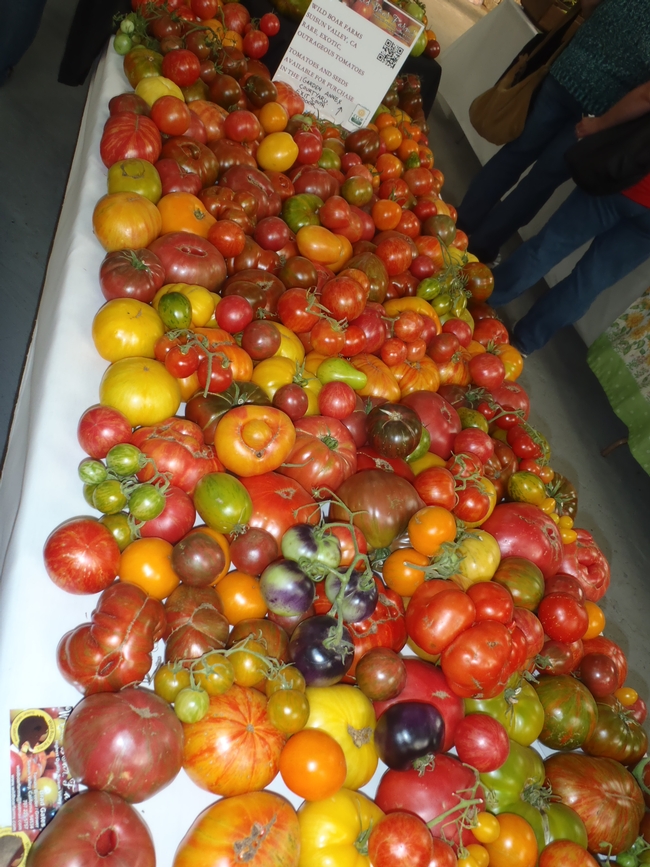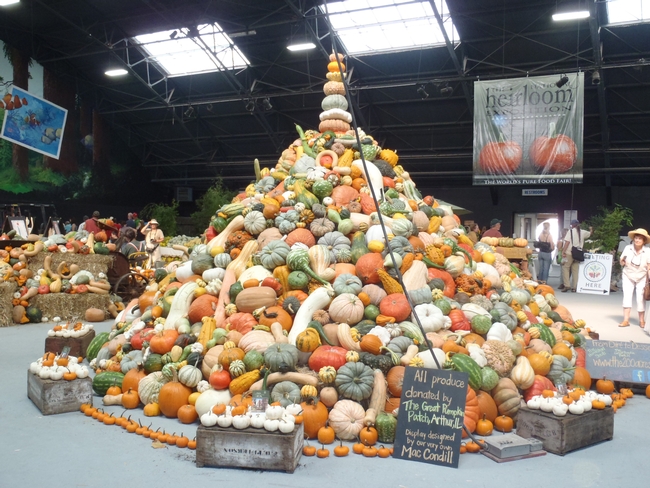Posts Tagged: genetic diversity
Why Genetic Diversity Is Important in the Honey Bee
The declining population of honey bees troubles us all.Bee breeder-geneticist Susan Cobey, who holds a dual appointment at the University of...

Bee breeder-geneticist Susan Cobey (center with frame) teaches a queen-bee rearing class. (Photo by Kathy Keatley Garvey)
Heirloom Seeds
If you are a gardener, a history buff, someone who enjoys cooking, and/or cares about social causes, consider sowing some heirloom seeds (flowers, fruits and/or vegetables) the next time you do any planting.
Although there is no consensus on what an heirloom seed is, it is at a minimum, a plant whose seed is openly pollinated, or in the case of certain fruit trees, propagated through grafts and cuttings. Heirloom seeds are rich in history (frequently, the varieties date back at least 50 or more years, and sometimes, hundreds of years old), as they are often passed on by family and friends from one generation to the next, and often bear interesting names which offer insight into their fascinating history. Take for instance, the popular tomato that we know as 'Mortgage Lifter'. The story goes that during the 1940’s, an auto mechanic nicknamed “Radiator Charlie,” spent seven years breeding a tomato plant until he developed a sufficiently stable tomato plant which had all the traits and characteristics that he desired. Radiator Charlie, who was apparently, quite the marketer, sold his tomato seedlings for a $1.00 each (a small fortune in his day) and used the proceeds from those sales to pay off the mortgage on his house; hence, the name, 'Mortgage Lifter'.
Heirloom fruits and vegetables are difficult to find in supermarkets, as they tend to be delicate, have a shorter shelf-life than their commercial counterparts, and are not standardized in shape or size such that they can be packed and shipped over long distances. You may have better luck finding heirlooms at farmers markets. People who love to cook, swear by the texture, flavor, and appearance of heirloom vegetables and fruits, as no two vegetables or fruits of the same variety, look exactly alike.
Also, by growing heirlooms, and better yet, saving their seeds and passing them onto others, you help maintain genetic diversity and prevent the extinction of certain varieties of flowers, fruits and vegetables, which have been, and continue to, disappear at an alarming rate.
So as you peruse through your seed catalogs this winter while daydreaming of spring, consider giving heirlooms a try!



